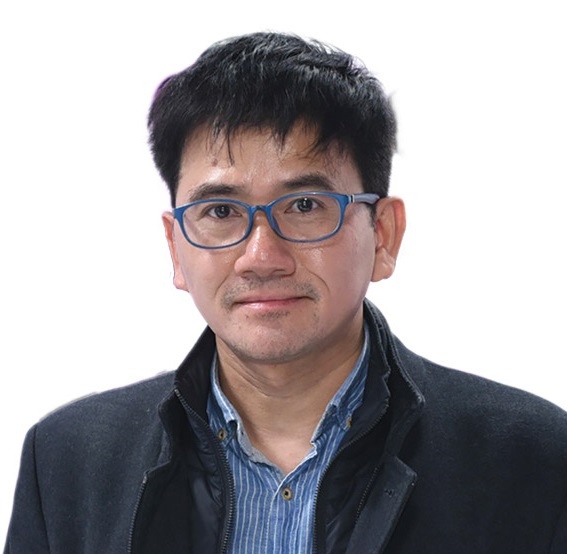Investing in the promotion of equality and fairness
 |
| Le Quang Binh - Director, ECUE Vietnam |
ECUE not only focuses on specific issues such as manifestations of gender inequality, stigma, and discrimination on the basis of gender but also provides both theoretical depth and underlying philosophy so that learners have both knowledge and belief. When knowledge and belief coexist, people will act and support equal and fair policies and behaviour. This is the difference between ECUE training courses.
Specifically, in addition to general knowledge, we provide learners with the mechanism of creating discrimination to make people aware that we often label differences with the majority negatively, thereby demeaning those who tend to discriminate, even excluding them when recruiting, training, or promoting.
By recognising this mechanism, we can prevent negative labelling to eliminate discrimination in the first place. Similarly, we also provide learners with knowledge about unconscious biases that influence decisions in hiring, training, and promotion.
For example, we tend to choose people who are similar to us, so we subconsciously choose people who are like us in terms of gender, ethnicity, or region and unfairly exclude others. These deep foundations will help us better eliminate the set of mechanisms that create discrimination or inequality.
ECUE’s activities often help businesses and organisations not only have specific and effective plans and policies to promote gender equality, but also gain the consensus of all levels of management and employees. In other words, it’s not just a must-do, but the culture and DNA of the agency and business.
Like many other social enterprises, ECUE creates a social impact by providing services for businesses and organisations. In other words, the more successful ECUE is, the more positive changes in terms of gender equality, non-discrimination, humanity, and respect for human rights will increase.
However, not many businesses attach importance to this issue because they have many other priorities, and do not dignify the sustainability of the business.
During the operation, we see that successful businesses like Schneider Electric or ANZ Bank pay a lot of attention to promoting gender equality, diversity, and inclusion because they have the resources and see that investing in these aspects will create an impact on the quality of human resources, business culture, and sustainable financial benefits. In contrast, few Vietnamese enterprises do this because an equal environment without stigma and discrimination is not yet their priority.
State management agencies should have policies to encourage and promote a culture of equality and inclusion. Currently the Ministry of Labour, Invalids, and Social Affairs is amending the Law on Gender Equality and the content of gender equality in the workplace should be the priority of this amendment. Experience from many countries around the world also shows that regulations such as disclosing gender ratios in the workforce at all levels of management will also have an impact on promoting gender equality in enterprises.
Currently, social enterprises like ECUE are operating as normal. Therefore, in addition to common difficulties like other businesses, we also face difficulties due to the particularity of the field in which we operate, which often focuses on creating value, making positive changes in society in terms of the environment and equality, and targeting the disadvantaged and the poor in society.
These sectors are often unattractive in terms of economic benefits, have many cognitive barriers, or require a large investment of people and new knowledge. Therefore, the state should consider giving priority to tax reduction for social enterprises, as a way of investing in activities that promote equality, fairness, and sustainability.
What the stars mean:
★ Poor ★ ★ Promising ★★★ Good ★★★★ Very good ★★★★★ Exceptional
Themes: Empowering Women
- Female influence still to be attained
- Shaping Vietnam's corporate future: female board members show business excellence
- Nestlé Vietnam contributes to elevating the role of women across the supply chain
- Empowering female leaders in tech: insights and aspirations shared at KPMG Tech Innovator 2023
- Brighter Path programme hosts empowerment meeting for ethnic minority girls
Related Contents
Latest News
More News
- Temporary relief for food imports as businesses urge overhaul of regulations (February 07, 2026 | 09:00)
- Opella and Long Chau join forces to enhance digestive and bone health (February 06, 2026 | 18:00)
- Vietnam-South Africa strategic partnership boosts business links (February 06, 2026 | 13:28)
- Sun PhuQuoc Airways secures AJW Group support for fleet operations (February 06, 2026 | 13:23)
- Pegasus Tech Ventures steps up Vietnam focus (February 05, 2026 | 17:25)
- The generics industry: unlocking new growth drivers (February 04, 2026 | 17:39)
- Vietnam ready to increase purchases of US goods (February 04, 2026 | 15:55)
- Steel industry faces challenges in 2026 (February 03, 2026 | 17:20)
- State corporations poised to drive 2026 growth (February 03, 2026 | 13:58)
- Why high-tech talent will define Vietnam’s growth (February 02, 2026 | 10:47)

 Tag:
Tag:




















 Mobile Version
Mobile Version